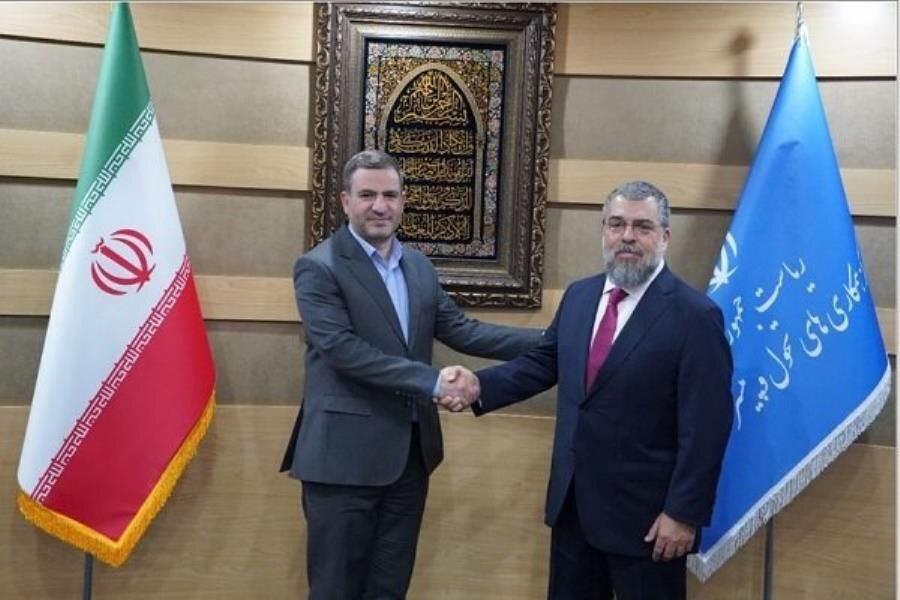Tehran, Brasilia explore avenues to expand sci-tech ties

TEHRAN – The head of the Center for Progress and Development of Iran (CPDI), Sajjad Ahadzadeh, and the Brazilian ambassador to Tehran, André Veras Guimarães, have discussed ways to foster cooperation between the two countries in the science and technology sectors.
During a meeting held in Tehran on Wednesday, Guimarães highlighted the two nations’ membership in BRICS, the bloc which is a critical platform for expanding regional cooperation and reinforcing multilateralism. “BRICS, representing over half of the world’s population and 40 percent of global GDP, holds a significant potential to improve economic, political, as well as scientific and technological structures at the global level," Mehr news agency quoted Guimarães as saying.
The official also called for the expansion of trade ties and a deeper mutual understanding of each country’s culture and geopolitical positions to help promote collaborative efforts between Iran and Brazil.
For his part, Ahadzadeh underlined the significance of boosting bilateral and multilateral cooperation and benefiting from the potential capacities, referring to the 120-year relationship between the two countries and the two countries' partnerships in the science, technology, and innovation fields since 2009.
The officials agreed to enhance cooperation in a wide range of sectors, including agriculture and food security, artificial intelligence (AI), quantum technology and digital economy, innovative technologies in tile and ceramic manufacture with minimal water consumption, AI in cognitive neuroscience, oil and gas, and renewable energies.
Producing ethanol as Brazil’s primary biofuel, manufacturing joint electric vehicles, exploring minerals and developing exploration tools, extracting crude oil in the deep waters of the Caspian Sea, and fostering cooperation in the aerospace industry were among the other agreements reached. Brazil chairs the BRICS group in 2025.
Developing scientific ties with BRICS
In April 2024, representatives from Iranian universities and higher education institutes and the BRICS Expert Council held a meeting in Tehran to discuss ways to expand scientific cooperation.
It was the first meeting held on the topic of scientific research and technological initiatives.
During the meeting, Victoria Panova, head of the council who is also Vice-Rector of HSE University in Russia, and Omid Rezaei-Far, an official with the Ministry of Science, Research and Technology, explored avenues to boost the scientific and technological ties, IRIB reported.
“Despite cruel sanctions, Iran has achieved many accomplishments in agriculture, biotechnology, technology, and engineering sciences fields,” IRIB quoted Panova as saying.
She also noted that, unlike what is imagined, the BRICS group is not merely an economic group. It is here to introduce the high capacity of the BRICS in terms of science and technology as well.
Panova went on to emphasize Iran’s capabilities and readiness to expand scientific cooperation with member states of this international organization.
Rezaei-Far, for his part, said the working groups will be established soon and aligned with BRICS educational activities; academic members of each working group will collaborate with BRICS to fulfill its goals.
Highlighting the high scientific capabilities of Iranian universities and science and technology parks, Rezaei-Far announced Iran’s readiness to participate in BRICS scientific endeavors, particularly skill training courses with an emphasis on innovation and technology.
The BRICS group, comprised of Brazil, Russia, India, China, and South Africa, was established in 2009. It has emerged as a significant force shaping global economic discussions.
MT/MG
Leave a Comment